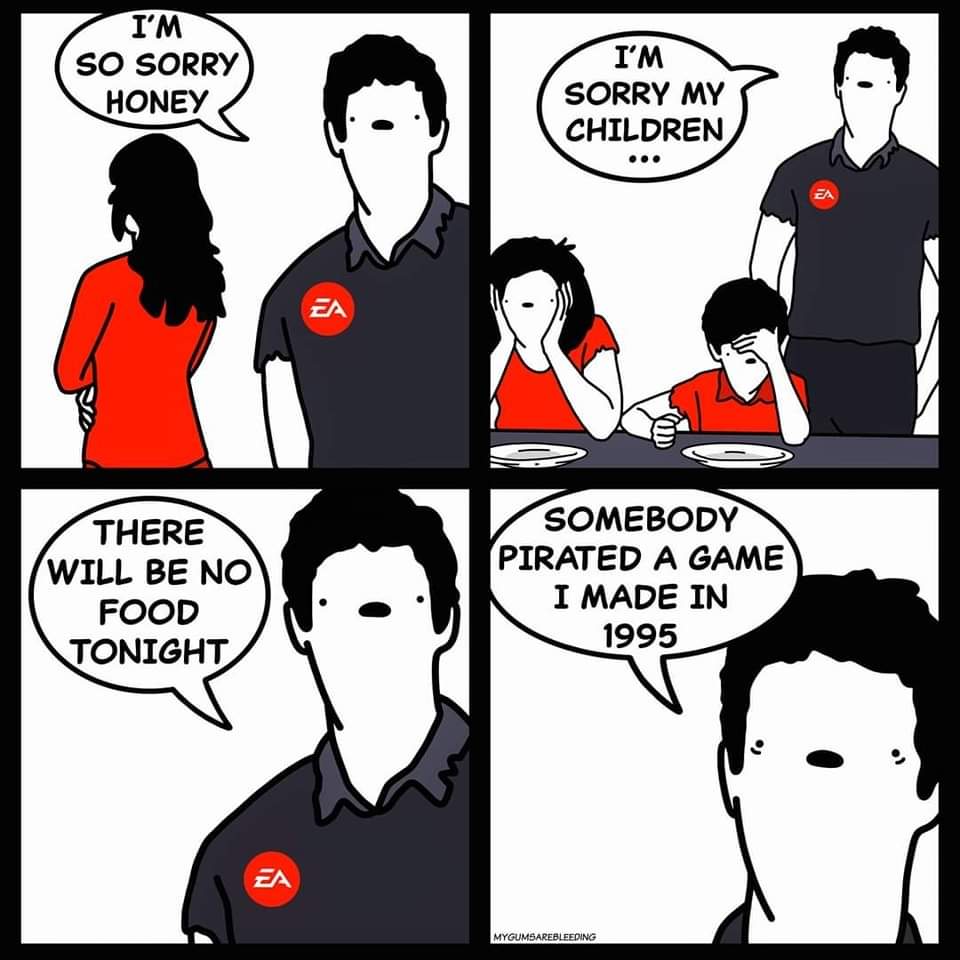this post was submitted on 21 Sep 2023
2253 points (98.0% liked)
Comic Strips
12745 readers
3798 users here now
Comic Strips is a community for those who love comic stories.
The rules are simple:
- The post can be a single image, an image gallery, or a link to a specific comic hosted on another site (the author's website, for instance).
- The comic must be a complete story.
- If it is an external link, it must be to a specific story, not to the root of the site.
- You may post comics from others or your own.
- If you are posting a comic of your own, a maximum of one per week is allowed (I know, your comics are great, but this rule helps avoid spam).
- The comic can be in any language, but if it's not in English, OP must include an English translation in the post's 'body' field (note: you don't need to select a specific language when posting a comic).
- Politeness.
- Adult content is not allowed. This community aims to be fun for people of all ages.
Web of links
- !linuxmemes@lemmy.world: "I use Arch btw"
- !memes@lemmy.world: memes (you don't say!)
founded 1 year ago
MODERATORS
you are viewing a single comment's thread
view the rest of the comments
view the rest of the comments

This is not true, keys are unique therefore it is technically very possible to track their way of payment.
No there isnt. Find interviews from developers on this. They go deep and technical with the detail. They create the keys at a different time. Yes, they are unique. But they're not associated with the payment, only to the user who claims them in a DRM platform. Only the retailer knows the payment details. If it's a reseller with stolen cards, then no detail arrives to the developer, just a transaction then a transaction reversal. The developer doesn't know which client owned the card that reversed the payment, nor which key was given by the retailer to the final customer.